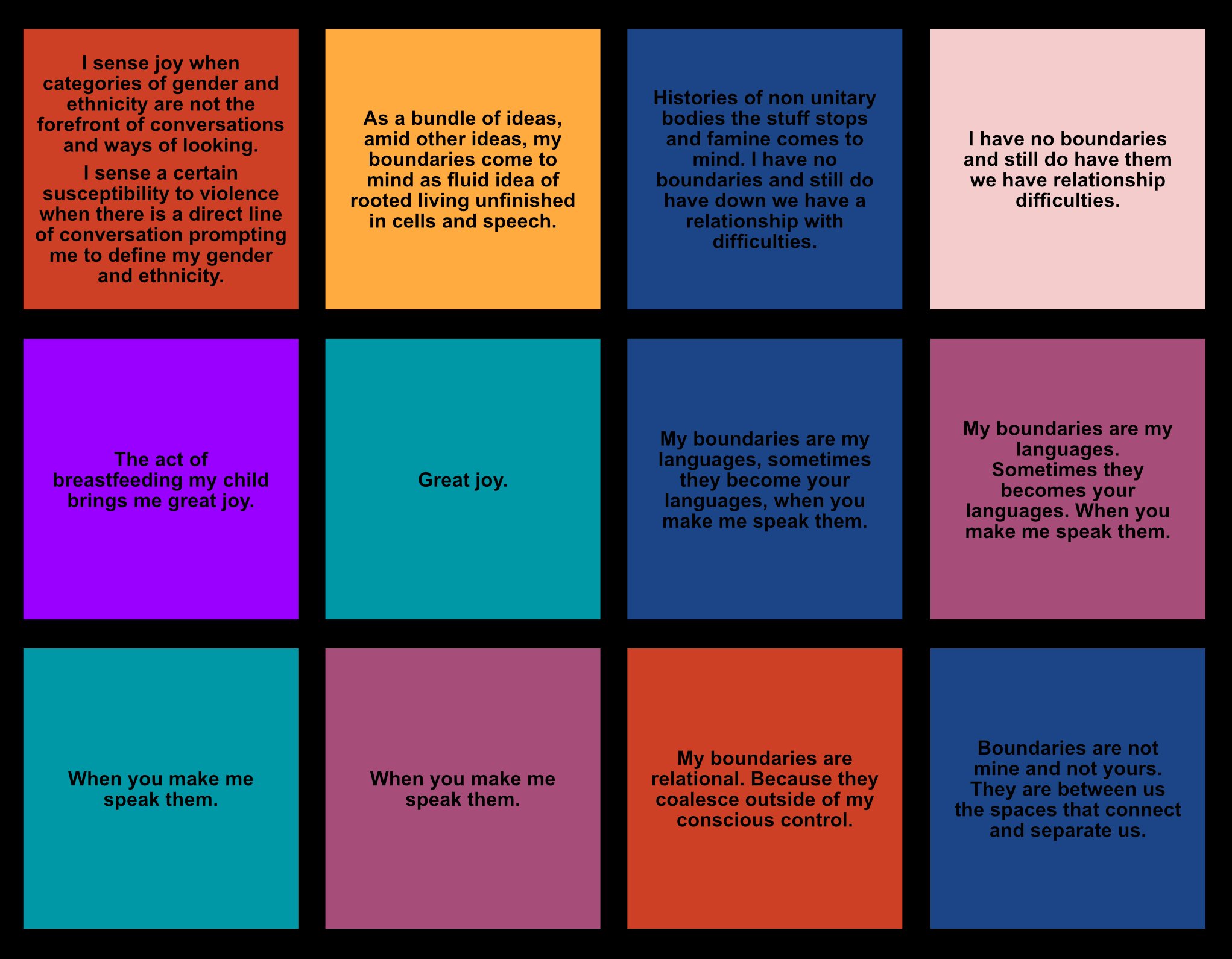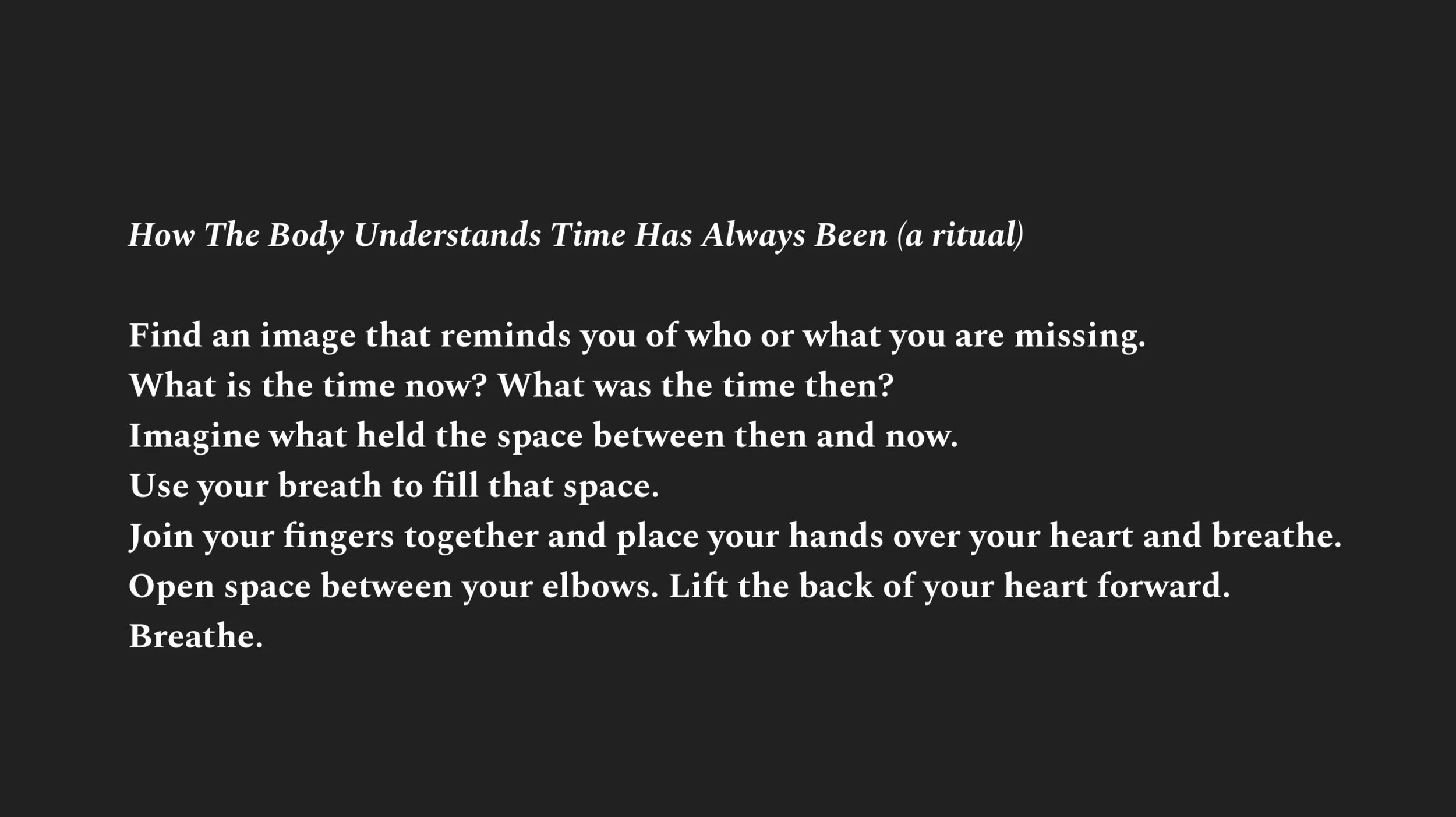Force with Force Chorus
Performative Intervention: Group Format
Liebig 12 in Partnership with Vorspiel/Transmediale-CTM Berlin 2022
Zentrum fur Kunst und Urbanistik, Berlin 2022
About the performative intervention
Force with Force Chorus is a collaborative workshop, hybrid performance, and exhibition. In the first phase collaborators devise a collective narration translating theory in Judith Butler’s The Force of Nonviolence: An Ethico-Political Bind through personal experiences and understandings of violence. Drawing upon practice-as-research methodologies, groups engage in collective processes to resignify theory through autoethnographic and performance-making methods. Collaborators are invited to read their written reflections out loud as well as the writings from others in the group, approaching nonviolence as a technique of connecting a singular experience across multiple subjective experiences.
During the virtual performance of the collective narration, a group of voices assemble online. Video cameras are turned off. Names are changed to the first letter of a chosen name. A profile picture is replaced with a colorful side. Similar to a Greek chorus, but without a leader, the act of sensing the porosity of words to speak to understand rather than to speak to be heard cascades subjective experiences into virtual space. Both collaborators and audience members are invited to imagine how relationships can be formed without the need to categorize and identify according to gender, ethnicity, religious affiliation, or sexual orientation.
The recording of the virtual collective narration is documented as sound art, exhibited, and shared with a broader public. Guests are invited to listen to the audio recording, participate in a shortened version of the practice-as-research, write reflections, and discuss the relationship between nonviolence and social equality.
The in-person iteration of Force with Force Chorus focuses on displacement as a form of violence. Collaborators engage in writing activities related to migration, reflecting on memories of home and encounters while adapting to new environments. Through performative writing practices and collective narration, collaborators connect their experiences across generations and cultural backgrounds, exploring how language-sharing offers refuge beyond geographical boundaries. Collaborators are invited to read their writing out loud as part of the collective narration, creating space for enhanced connectivity to people and the environment. The collective narration is a form of mourning ritual whereby writing one’s memories into the present creates new space for connectivity to people and the environment.
Collaborators: Carolina Truzzi, Fatemeh Takhtkeshian, Megan Lederman, Farnoosh Nik, Jacob Lefton, Margherita Land, Susan Pfeffer, Ilana Salama Ortar, Laura Besancon, and Luuk Smits.












